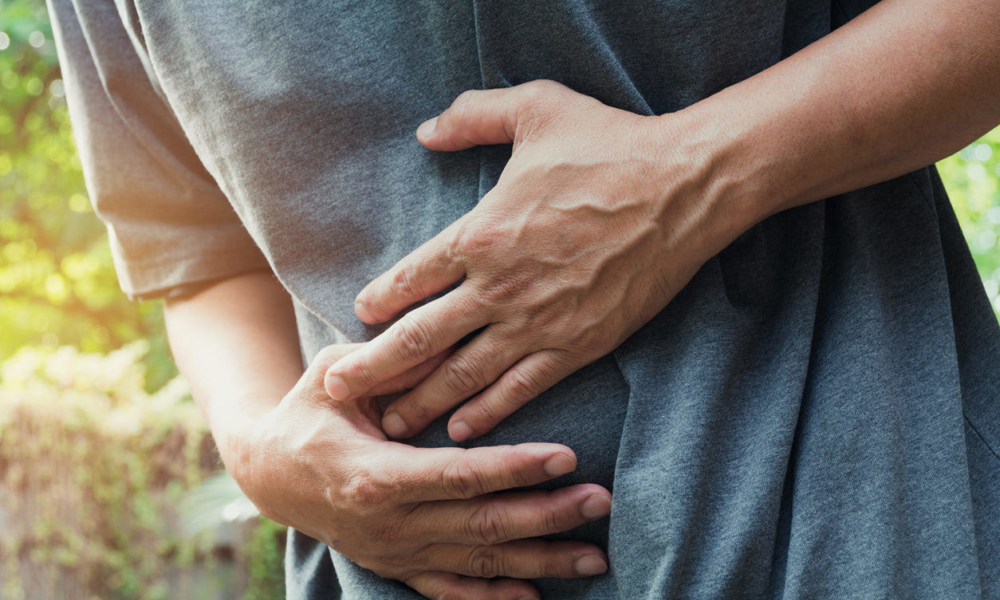
Feeling the Bloat? Here’s 6 Reasons Why
We've all been there - you feel uncomfortable and your pants won't button. You’ve experienced the discomfort that bloating causes and it's oftentimes painful. The truth is that there are many causes of bloatedness. Maybe there is an underlying medical problem responsible for other non-food-related causes.
Read on to learn more about some of the most common reasons people experience bloating and gas. Along with causes, we'll provide a few potential treatments so you can get rid of the uncomfortable bloating sooner rather than later.
Overeating
Overeating is the overwhelming primary cause of most cases of bloating and gas. It's probably the first thing you consider if you feel bloated. Many people overeat before they realize that it has happened. You can minimize overeating and the accommodating bloatedness and feel better.
You can do this by eating smaller portion sizes of food; even a small reduction in portion size can help. Portion plates and small dinner plates are available for purchase. Using them certainly makes portioning your meal sizes much easier.
Another not-so-easy thing to do is to slow down when you eat. In our fast-paced world, the need to eat quickly is oftentimes born of self-preservation. However, eating slower gives your body time to digest the food that you eat so it can signal to the brain when it is full. As we said, this takes conscious effort to maintain for the long term.
Food Intolerance
What if you have not overeaten? What could possibly be the cause of feeling bloated?
Food intolerance is another common cause. Certain food intolerances, such as Celiac Disease or sensitivity to gluten, acidic foods or spicy foods, can cause the GI tract to overact, leading to bloating as the body tries to break down the food for the body to use.
Keep a food journal detailing the food you eat and accompanying bloatedness helps you to get an idea of the foods that may be causing you to bloat. Notate the type of food that you ate and the amount, as well as the type of discomfort you felt after eating.
Constipation
Some people don’t even realize they are constipated, but it’s quite common. It’s easy to assume that the way to tell if you’re constipated is if you don’t have a lot of bowel movements. However, that’s not always the case. According to Hopkins Medicine, you can still be constipated despite having regular bowel movements. A great way to determine if you could be dealing with constipation is if you tend to strain or push during a bowel movement, if you don’t feel an emptiness feeling following a bowel movement, and/or if your stool resembles pebbles or rocks.
Drinking Carbonated Beverages
Carbonated beverages like soda causes a person to feel bloated due to the fizz (or carbonation) in them. The fizz can lead to gas being trapped in the stomach. Along with feeling bloated, drinking excess amounts of carbonated beverages can cause you to belch more than usual.
During the evening, avoid consuming carbonated beverages. It might also benefit you to reduce the number of sodas and carbonated beverages you drink at other times as well. Water is the best drink to quench your thirst as it replenishes the body and helps us feel our best. It keeps you hydrated so you can be at your best. If you drink too much soda, peppermint tea can reduce the discomfort you feel. Keep a bit of peppermint tea on hand for this specific purpose!
Eating Late at Night
Eating a heavy meal before bed will cause you to sleep on a full stomach containing loads of calories. It may cause you to feel like you've gained an excessive amount of weight while you slept.
Your digestive system slows down while you sleep. Some of the positions you sleep in can cause discomfort as you sleep and still leave you feeling bloated the next morning.
Consume heavy meals before 6 p.m. each night to allow food to digest, at least partially, before you make your way to bed.
Undiagnosed Medical Conditions
The most concerning reason why you might feel bloated is the possibility of underlying medical conditions. Liver disease, heart disease, and venous insufficiency may lead to excess fluid in the abdomen. If this happens, you may swell in certain areas.
Talk to your doctor to rule out any underlying health conditions that you might not realize exist.
Symptoms of Bloating
Bloating can leave you with a feeling of being uncomfortable. It’s not just the feeling of a distended stomach, though. There are other symptoms to be on the lookout for:
Common Symptoms:
- Buildup of gas
- Excessive flatulence
- An intense feeling of an urge to have a bowel movement
Severe Symptoms:
- Diarrhea
- Blood in stool
- Nausea
- Vomiting
- Heartburn
- Unexpected weight loss
If you cannot get rid of bloating yourself or are experiencing severe symptoms, schedule an appointment today at Digestive Health Partners. Your doctor will ask questions to determine if an underlying medical condition is to blame for the problem and provide treatment options that aren’t available at your local drug store or supermarket.